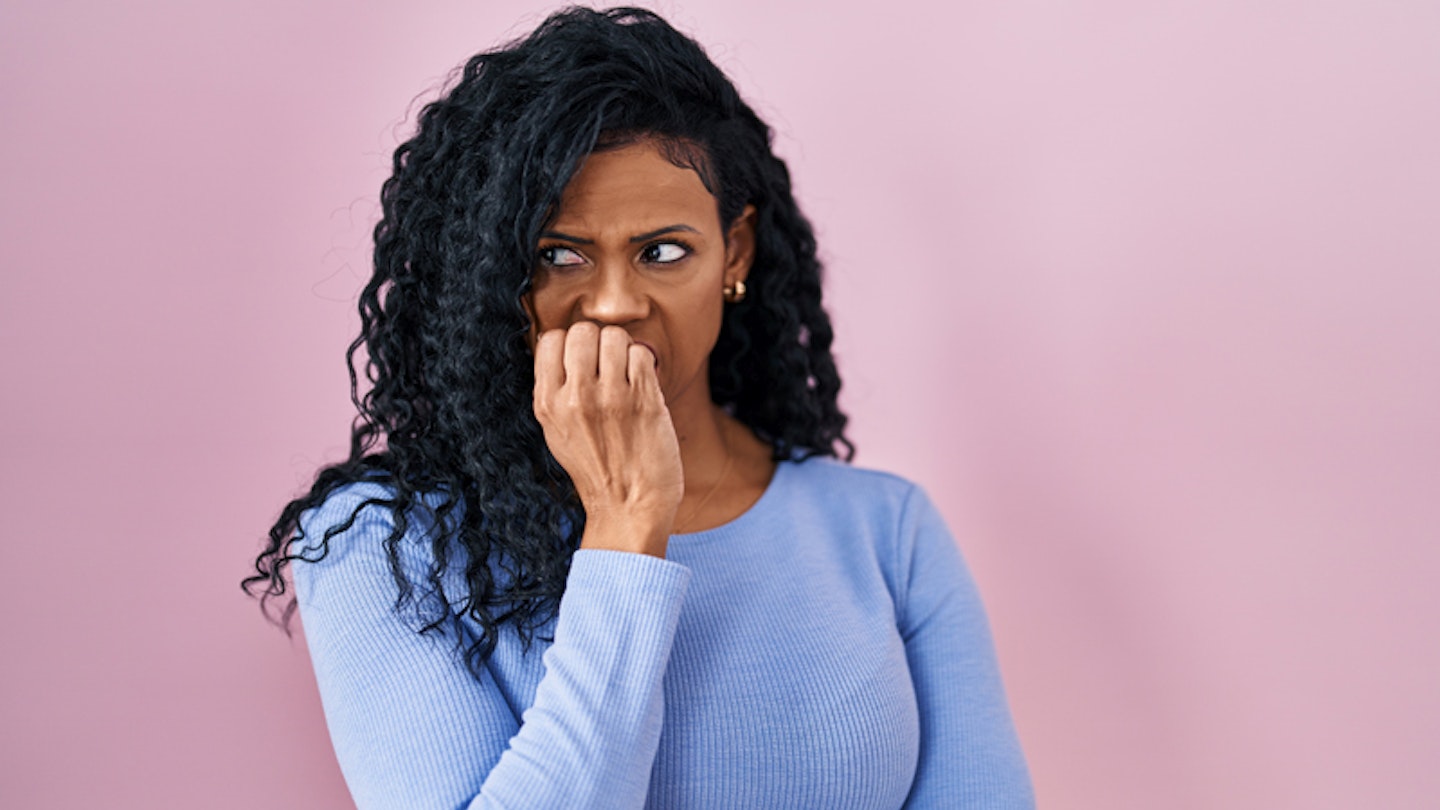Why we need to normalise the ‘embarrassing’ symptoms of menopause
There are as many as 80 recognised symptoms of menopause - and half the global population will experience at least some of these as they hit the milestone in their lifetime. While brain fog and hot flushes might get us talking, there are several symptoms that women will suffer in silence with, including incontinence, hair loss and skin concerns.
“There is still a lot of shame, stigma and silence around the menopause and women’s health,” explains Dr Philippa Kaye, menopause expert and TV doctor. “That silence harms us. It’s really important that we talk about it.”
Here, three experts get frank about the menopausal symptoms we might shy away from…
Little leaks
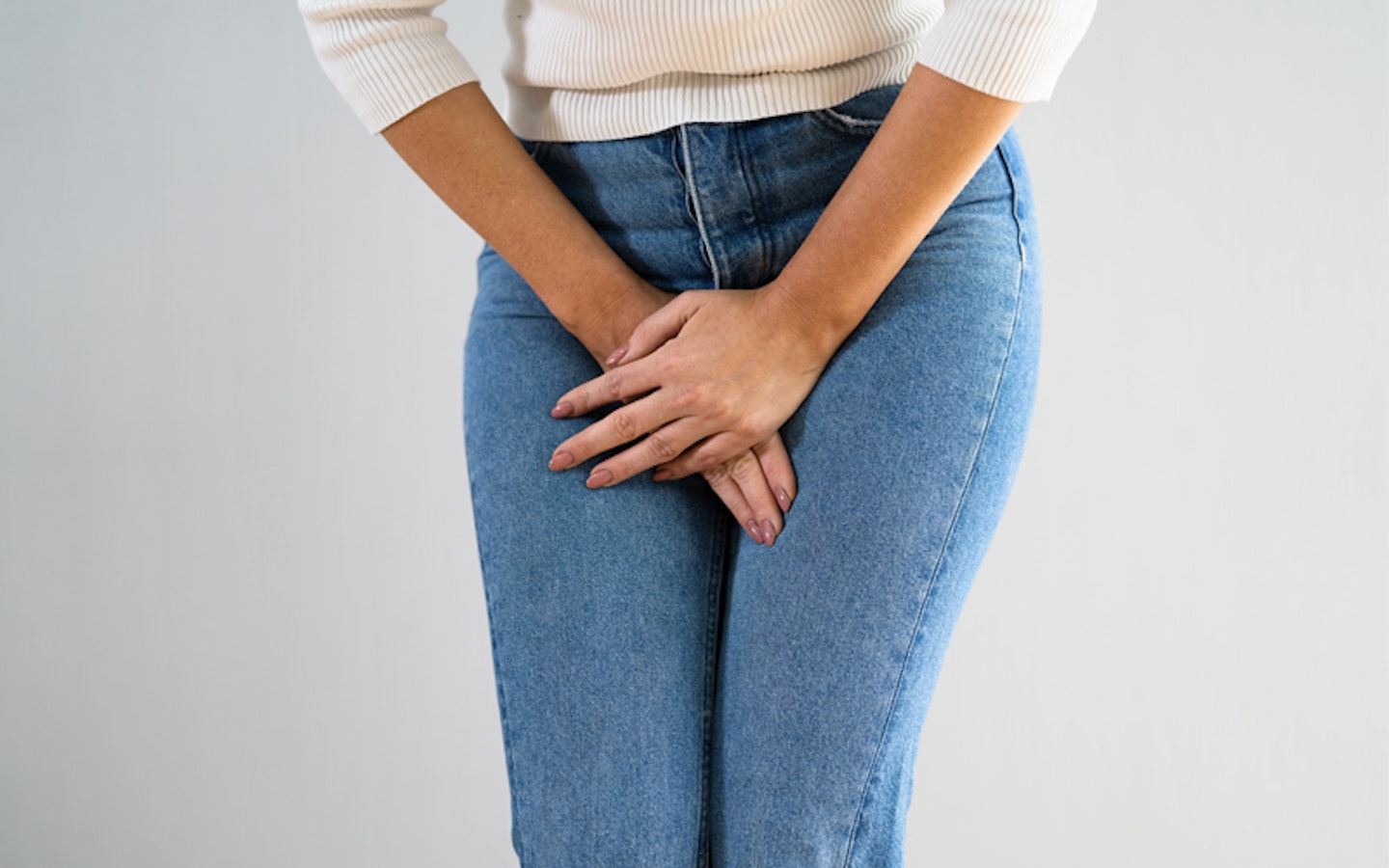
“About one-in-two women in the UK will experience bladder leaks around the time of menopause,” explains Dr Philippa. “There are lots of reasons for this but, essentially, the pelvic floor is a hammock of muscles which hold up the organs in your pelvis – your bladder, your bowel, your uterus – and that is affected by hormonal changes. It can become weaker, which means you might get stress incontinence, where you leak when you jump, run, cough, laugh or sneeze.
“And there are other forms of incontinence as well, including something called overactive bladder, which is more common around the time of the menopause. Sometimes, you can get a mixed picture of the two.”
Whatever the reason for the leaks, it seems women are reluctant to seek help for them.
“Always Discreet did a survey and the results showed about 50 per cent of people who experience bladder leaks don't want to talk about it, and only about one-in-three will go to their GP,” adds Dr Philippa. “People often say, ‘I thought it was a normal part of getting older’. There’s an important distinction between something being common and something being normal and accepted. The fact that bladder leaks are so common doesn’t mean it’s something you have to put up with. It’s really important that you see your GP because there are lots of things we can do.”
According to Dr Philippa, the first thing to try is pelvic floor exercises.
“Pelvic floor exercises are hugely important,” she says. “You need to do small, sharp holds, for a count of two or three, then some long holds. Like any muscle, it will take time to build up that strength. You don't expect to look like Arnie after doing two bicep curls and that's why it's so important that you ‘squeeze the day’, every day.”
If doing these exercises regularly doesn’t work for you, Dr Philippa advises going back to your GP who could offer other treatments. “You might be helped by some vaginal oestrogen for urinary symptoms, you might be referred to a physio for something called biofeedback, which can be useful if you have overactive bladder, and there are other medications. If you have an element of prolapse that's contributing to it, then sometimes people need surgery.
“There are lots of things we can do,” she adds. “I really don’t want anybody to just put up with it.”
Hair loss
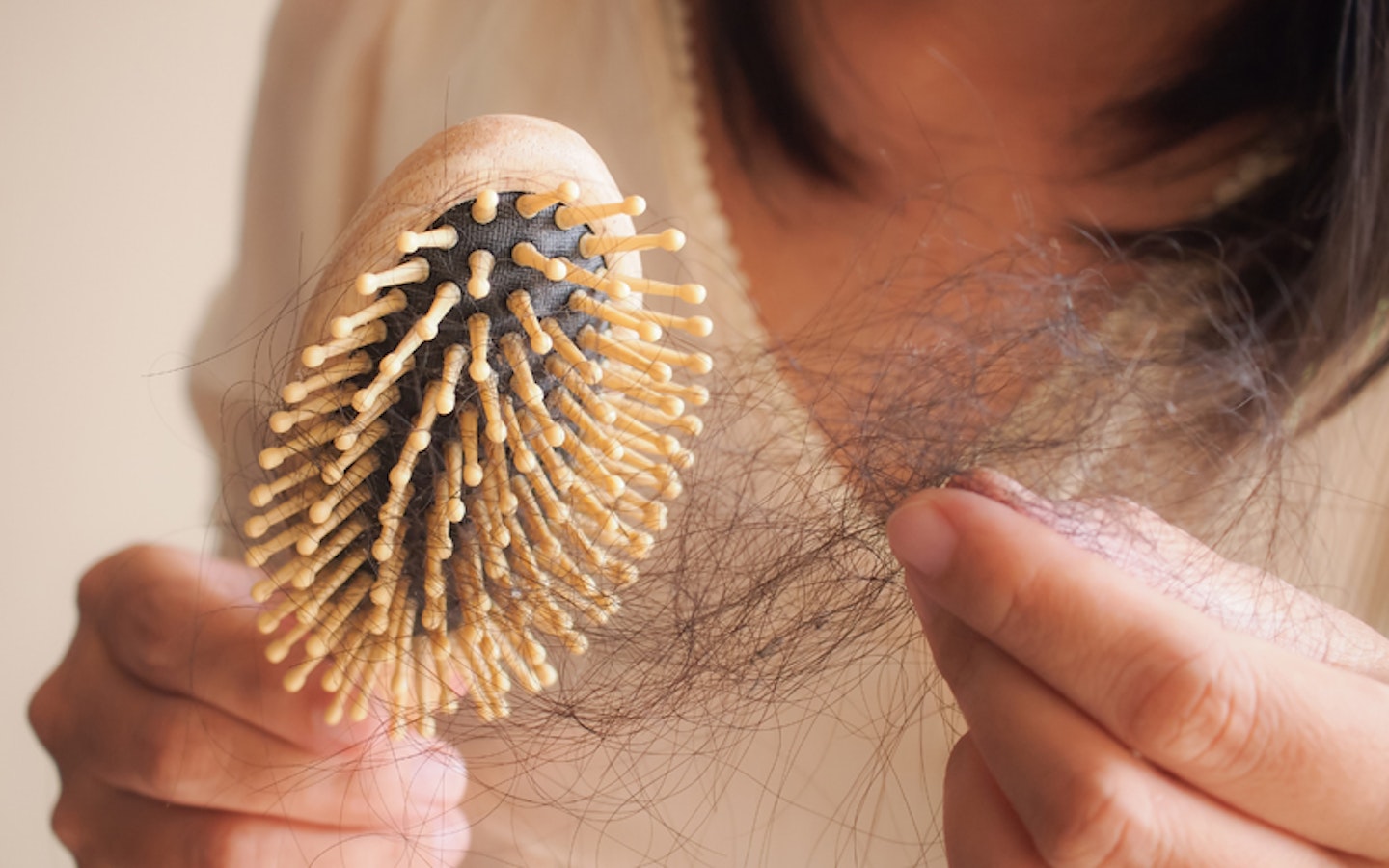
While bladder leaks could be described as an invisible symptom of menopause, hair loss or thinning can be all too visible for many women.
“There are a variety of things going on in perimenopause and as you reach menopause that can impact the hair,” leading trichologist Anabel Kingsley explains. “Oestrogen’s a really hair-supportive hormone and helps to keep hairs in their anagen, or growth, phase. In perimenopause, your oestrogen levels decline, almost off a cliff, so this is when some women first start to experience changes to their hair. A lot of women notice excessive hair shedding, called telogen effluvium, which is usually self-limiting but can go on for a little while as hormone levels stabilise. The other thing that can happen is hair thinning, as you lose the protective effect of oestrogen against the negative effects of testosterone. Testosterone can miniaturise hair follicles to cause them to produce hairs that are finer and shorter.”
Besides fluctuating hormone levels, the overall experience of menopause can contribute to hair issues, too. “Menopause is very stressful,” says Anabel. “There’s immense psychological but also physical stress, and this stress can also cause hair loss.”
The age that we hit menopause, which on average is 51 in the UK, can exacerbate the problem, too. “Our hair, scalp and follicles are not immune to the ageing process,” advises Anabel. “Every woman - and man - will naturally find they will grow hairs that are slightly finer and less robust than they used to be. It happens regardless of menopause, but menopause can really exacerbate it. Health conditions that become more common as we age, like thyroid imbalances, can really impact hair as well.”
So, what can we do? “If a woman is experiencing hair shedding, that’s a really reactive type of hair loss and you need to ride it out because the trigger event has passed,” explains Anabel. “But, if it’s going to be chronic and keep occurring, you can use topical scalp drops to reduce hair shedding.”
Taking a holistic approach can help, too. “Look after yourself, eat well and address any deficiencies,” suggests Anabel. “Vitamin D deficiency is incredibly common, and vitamin B12 deficiency, too. Try to keep stress levels down and look after the condition of your hair so it’s not breaking. Use volumising products for a psychological boost.”
If you take HRT, bear in mind that this can have an effect, too. “Some can be beneficial to your hair, some can be hair neutral and some may be detrimental. You shouldn’t just base your HRT on your hair, but it could be something to talk to your doctor about.”
Anabel recommends seeking help from a trichologist or dermatologist more urgently if your hair loss is accompanied by other symptoms. “If you have severe redness, itching or irritation accompanying your hair loss, or if you start to notice that you’re losing hair just from your front and your hairline is moving backwards, it can signify scarring hair loss, or cicatricial alopecia.”
Experiencing any type of hair loss or thinning in relation to menopause can be emotionally draining. “When you go into menopause, it can feel like your femininity is being challenged and then having your hair, which is so intrinsically linked to our sense of self, come out can be really devastating,” adds Anabel. “Our hair is a kind of armour – experiencing hair changes can be a very challenging and distressing part of menopause.”
Breakouts and beards
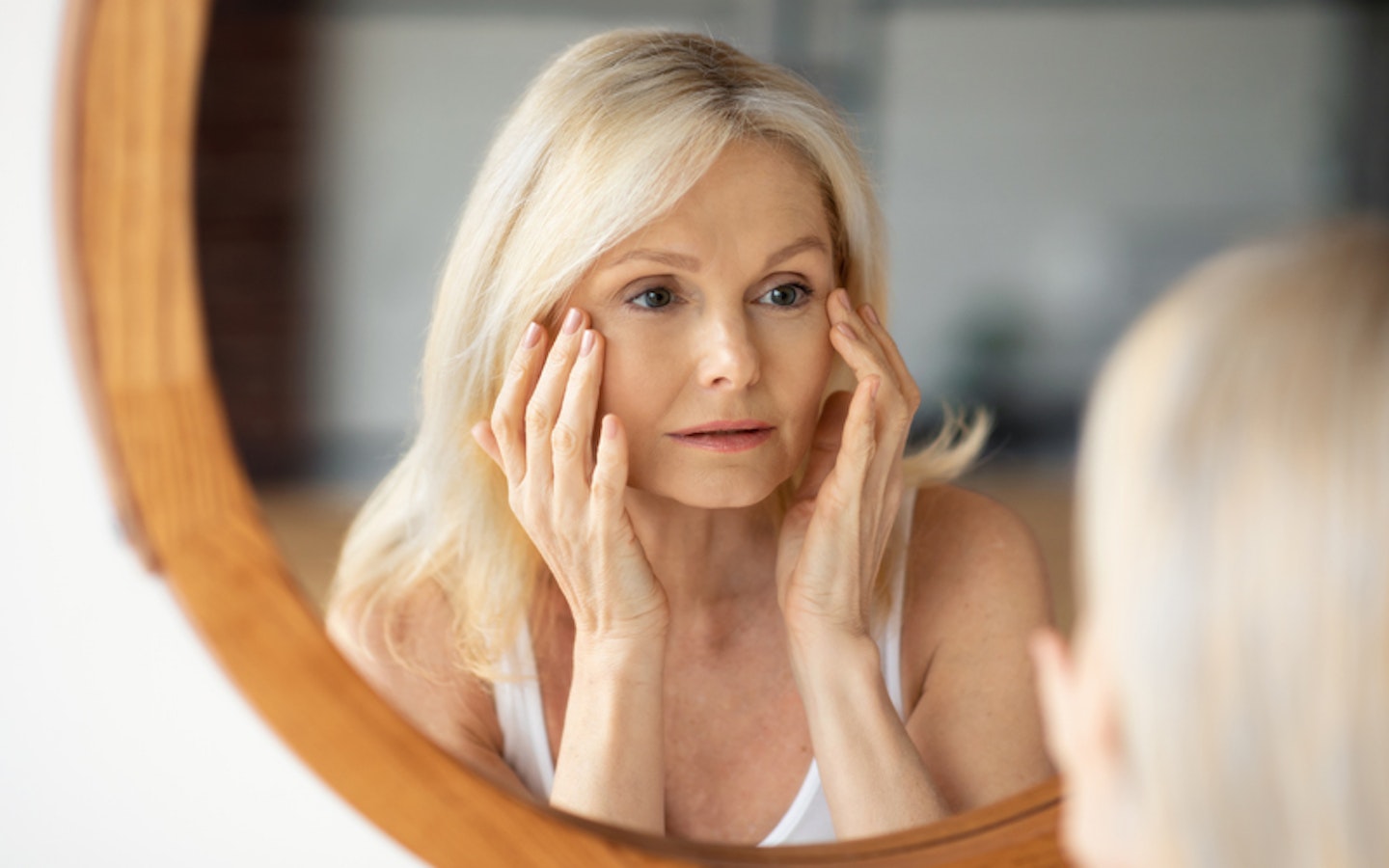
Perimenopause can present plenty of skin concerns, too. “Skin dryness is very common, and fine lines and wrinkles will start to appear,” explains Dr Sonia Khorana, a GP and Clinical Dermatology Expert for Olay. “But interestingly, because of the hormonal imbalance, some women will also notice that they’re starting to break out and might have acne for the first time. They’ve possibly got rosacea or pigmentation problems. Another embarrassing symptom is facial hair, which women probably won’t talk about.
“And, of course, when we think about skin, we often don’t think about the skin below but vaginal dryness is another embarrassing symptom.”
According to Dr Sonia, we can thank our hormones for all of these concerns. “Oestrogen levels don’t decline in a stepwise manner but in an irregular fashion. Progesterone also starts to decline in perimenopause and testosterone levels, too. It’s all hormone-driven.”
So, while we ride the hormonal rollercoaster, what can we do to save our skin?
“Start off with simple things,” advises Dr Sonia. “A good diet is really important. Focus on eating calcium-rich foods and reducing alcohol and smoking. Eat more nuts, fish and fibre-rich foods, and loads of fruit and veg. There’s also something to be said about phytoestrogens, which are plant-based compounds that have properties akin to oestrogen – try strawberries, nuts, seeds, beans, chickpeas, oats and liquorice root tea.”
Dr Sonia warns against a reliance on supplements, though. “Supplements are exactly what they say on the tin – supplements, not an alternative.”
In terms of skincare, Dr Sonia advises picking your products according to your problem. “If you’ve got dry skin, look at ingredients like niacinamide, glycerin, panthenol, ceramides, hyaluronic acid. You want to be gentle with your skin.
“For fine lines and wrinkles, consider using a product that has peptides, like Olay Collagen Peptide, as these signal your skin cells to make collagen. Sunscreen is so important, too.
“If you’ve got dull skin, look for exfoliating acids – like mandelic, lactic and glycolic acid or, if your skin is sensitive, a polyhydroxy acid. Salicylic acid is great for breakouts and, if you’ve got rosacea or redness, you could use a vascular laser or IPL device. There are lots of in-clinic options, too.
“For vaginal dryness, there’s lots of vaginal lubricants available over-the-counter, as well as vaginal moisturisers, and you can also get vaginal oestrogen that acts locally on the skin in the area.”
As a GP, Dr Sonia’s takeaway message is to go and see your doctor if you’re struggling with any of these symptoms, not least because the knock-on effects can be immense. “The years leading up to the menopause and the transition itself can bring huge changes to your body. Our appearance is very closely linked to our mental health. It’s so common to experience mood changes and to find it overwhelming to deal with the symptoms.”
Your transition toolkit
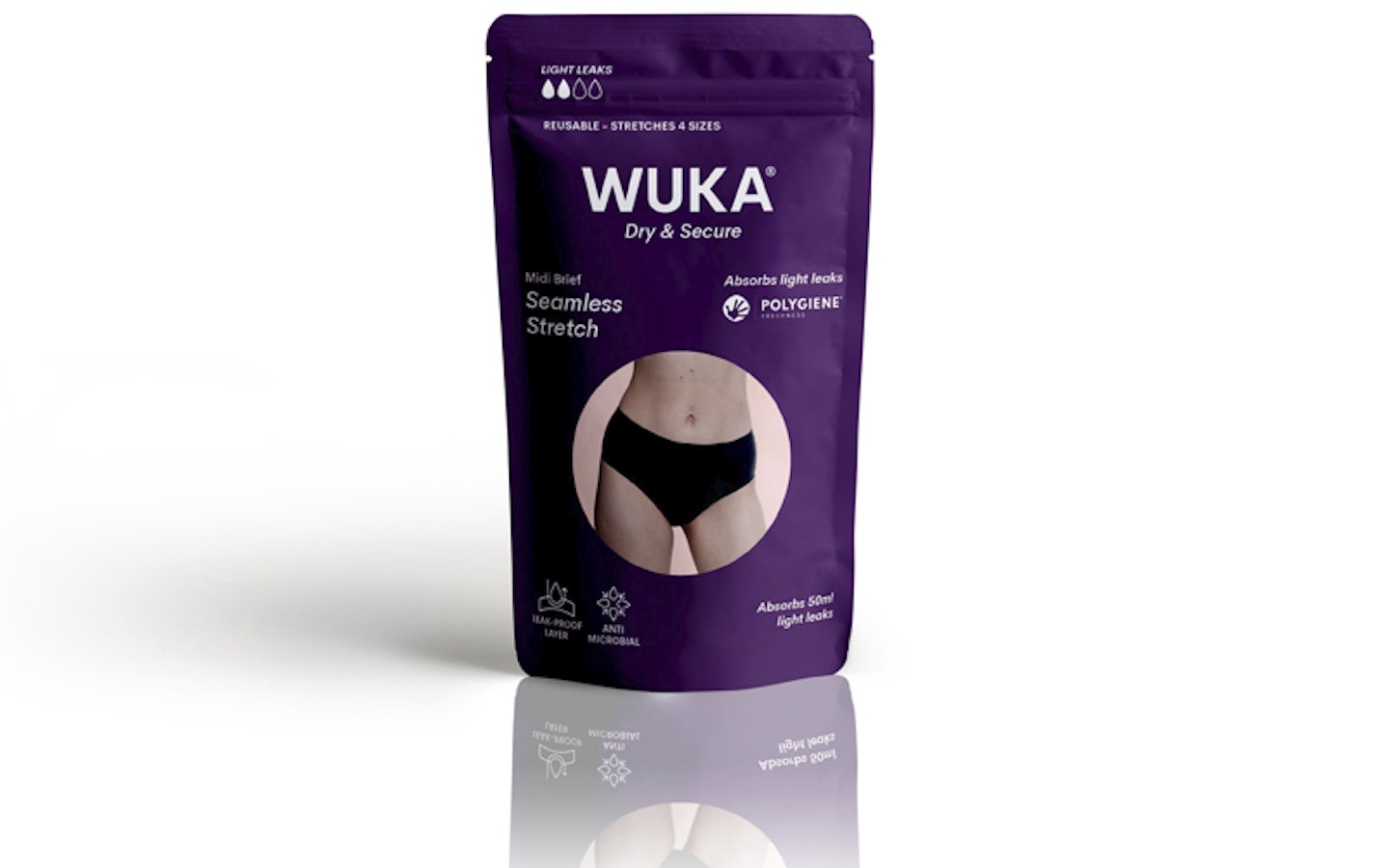
Wuka Drytech Incontinence Pants for Light Leaks, £21.99, Wuka.co.uk
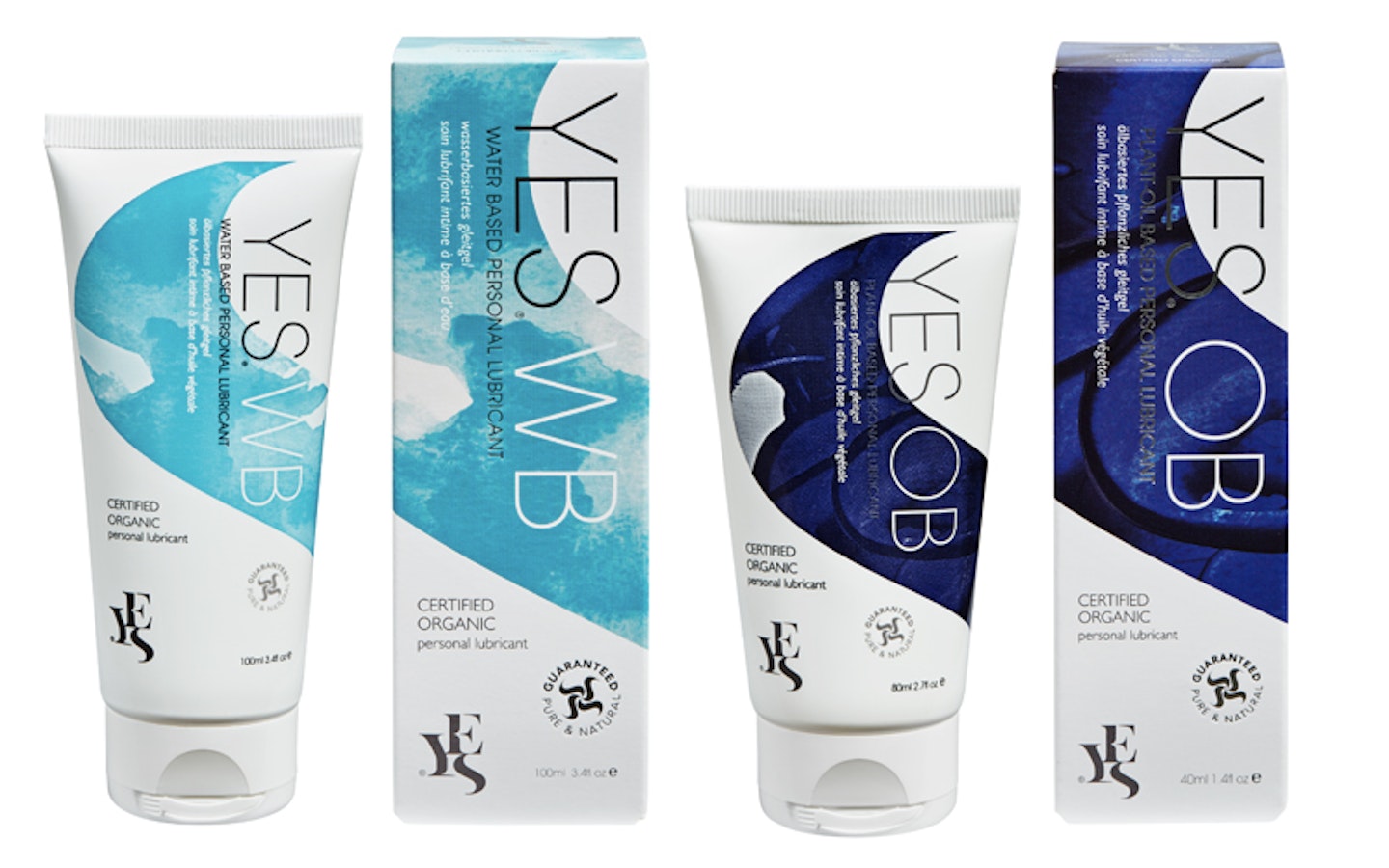
YES WB Lubricant and YES OB Lubricant, £11.99 each, Yesyesyes.org
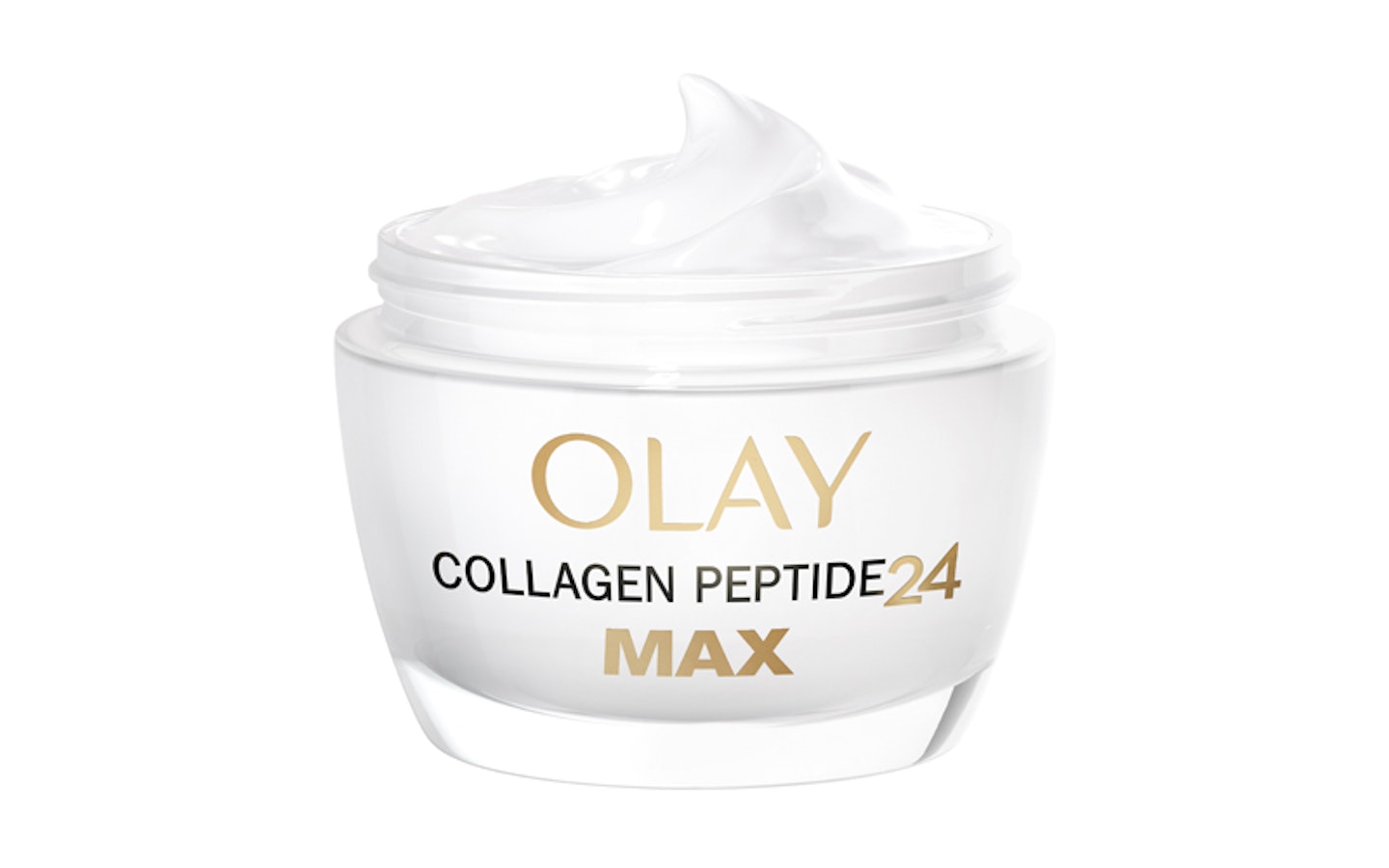
Olay Regenerist Collagen Peptide 24 MAX Day Cream, £44. Boots.com
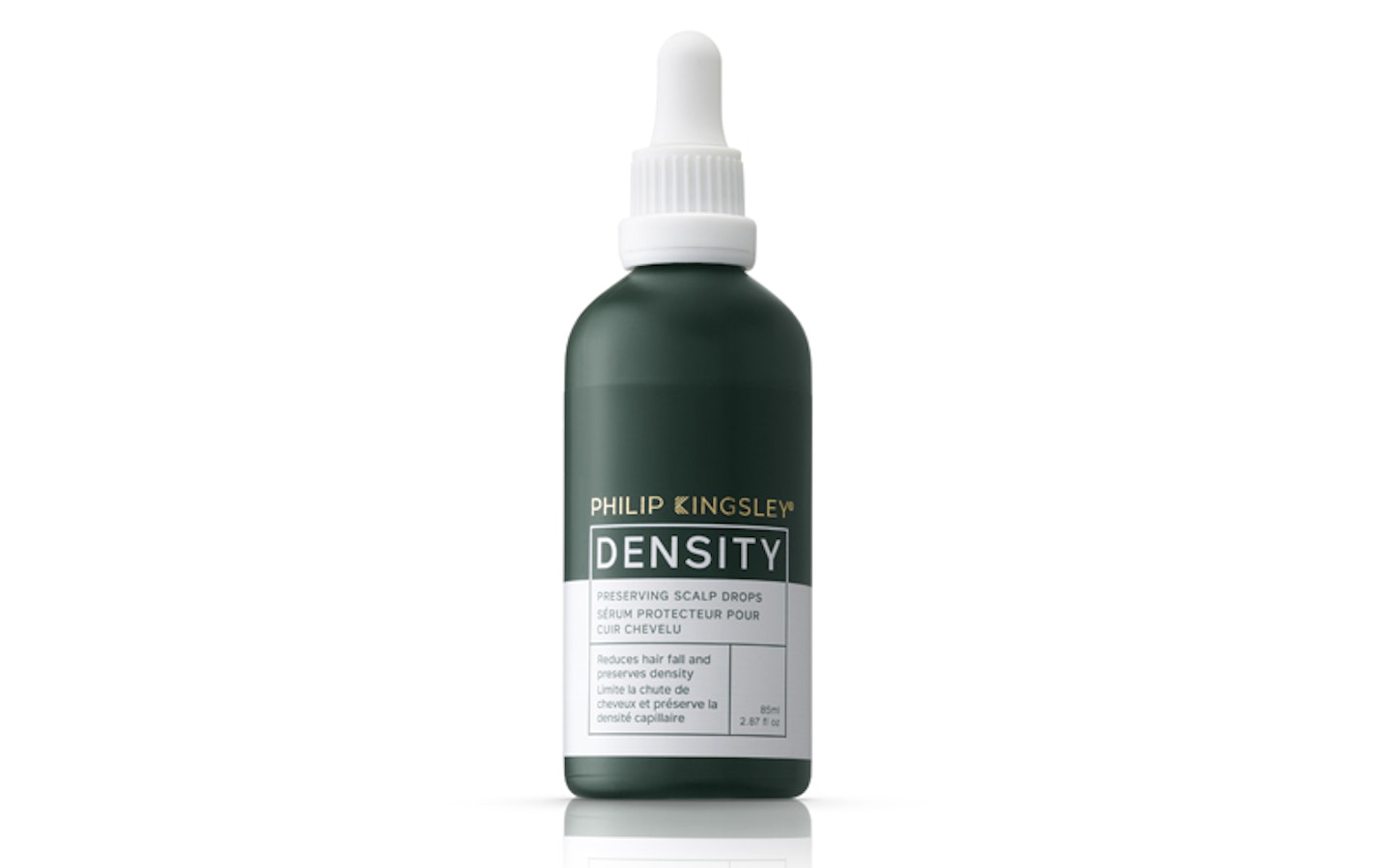
Density Preserving Scalp Drops, £48, Philipkingsley.co.uk
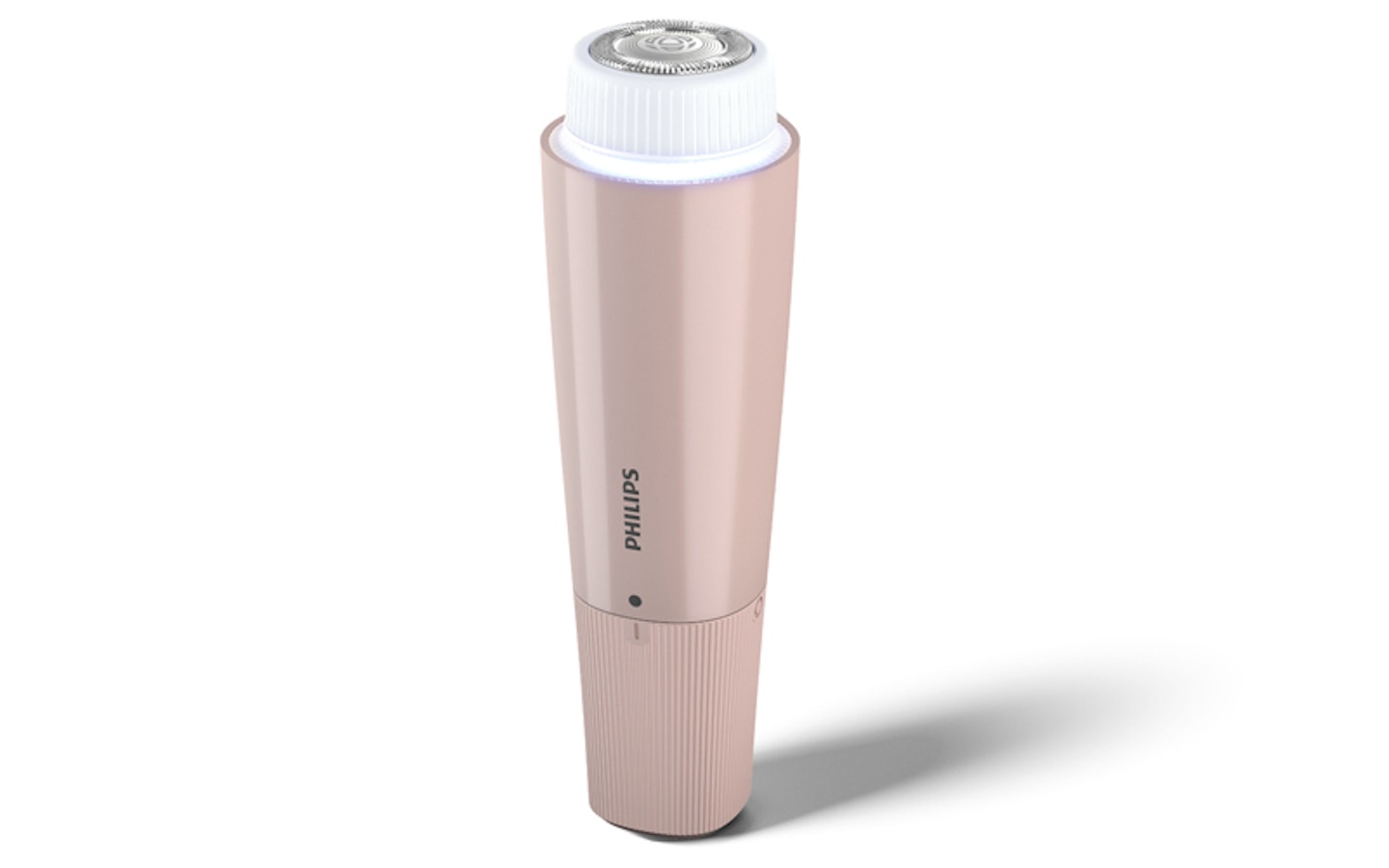
Philips Facial Hair Remover 5000 Series, £24.99, Boots.com
Photos: Shutterstock
